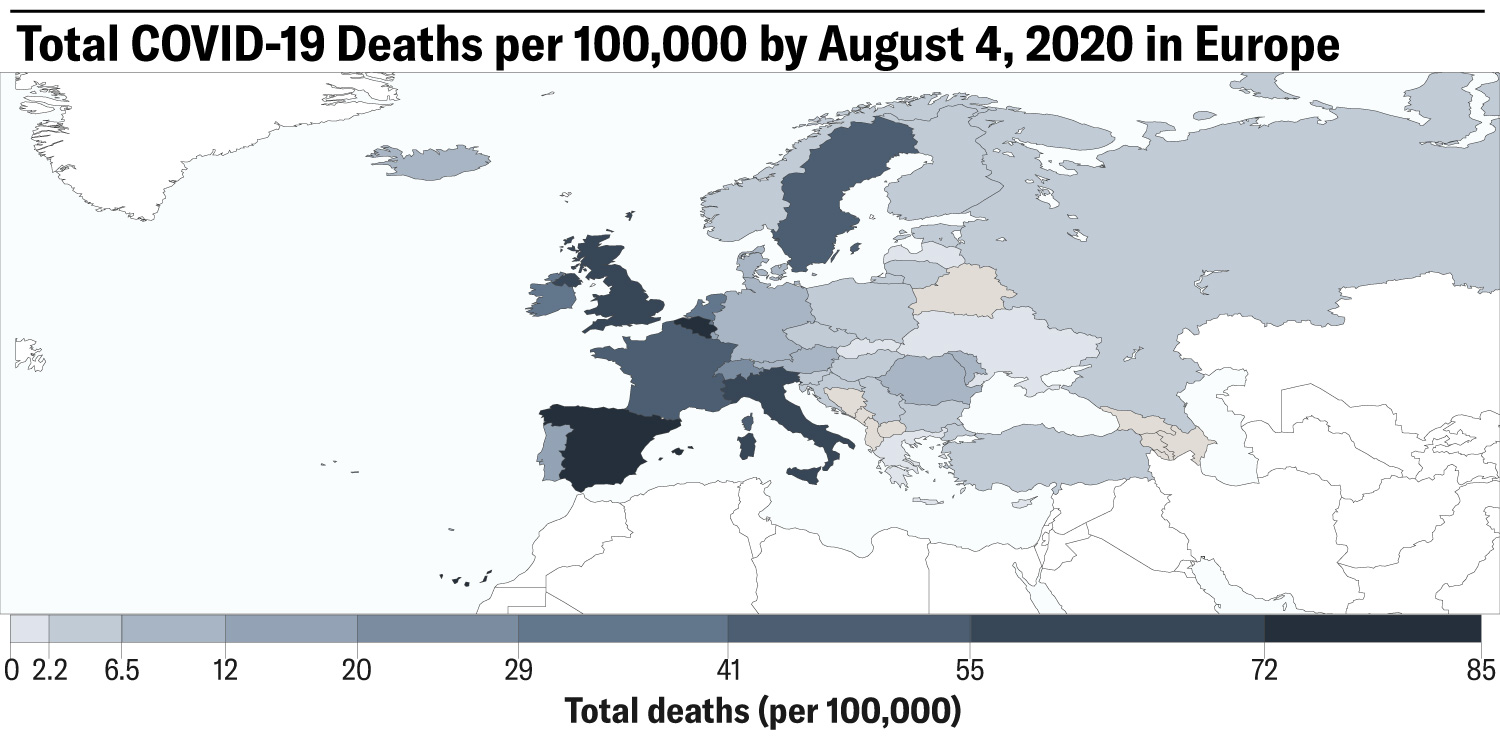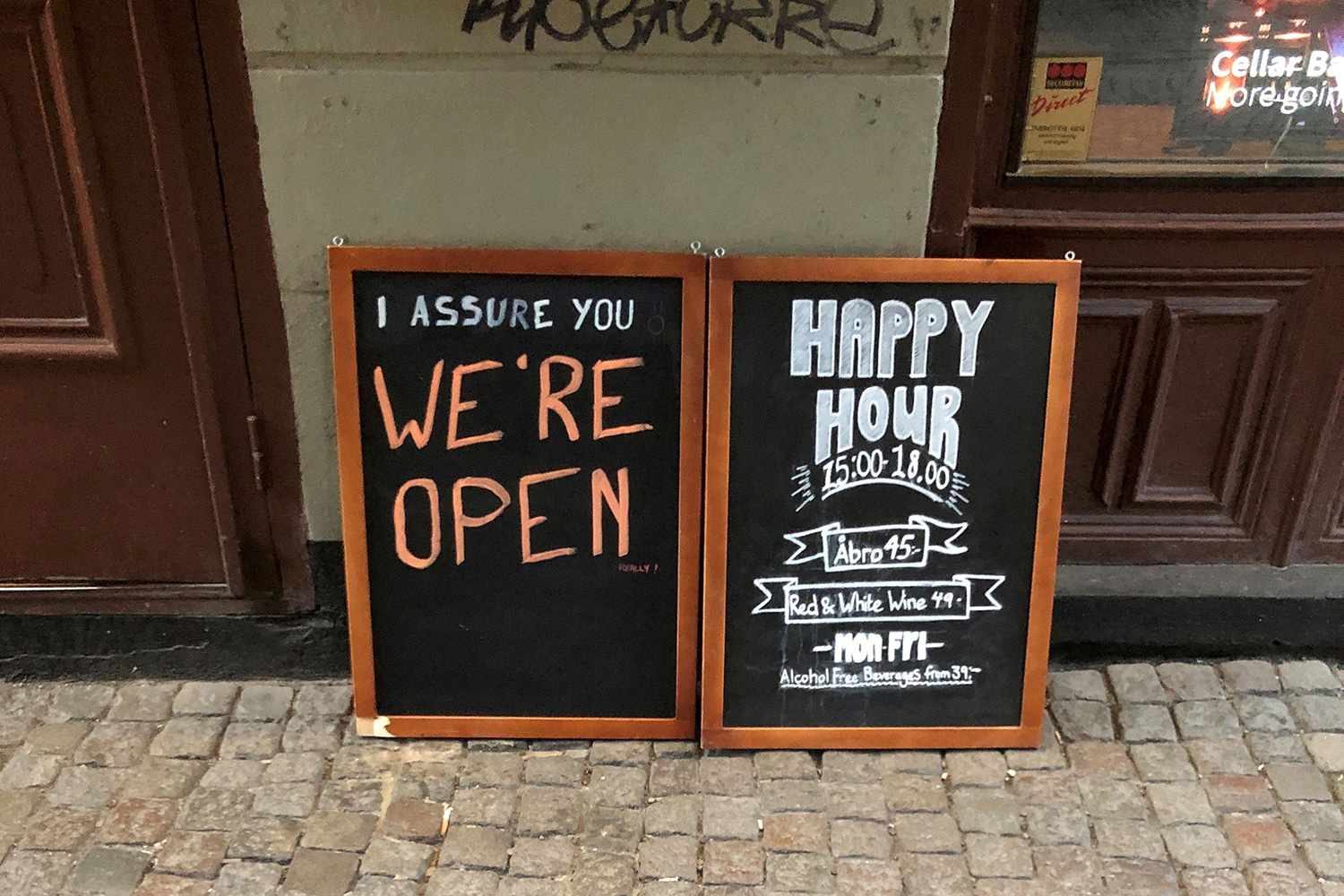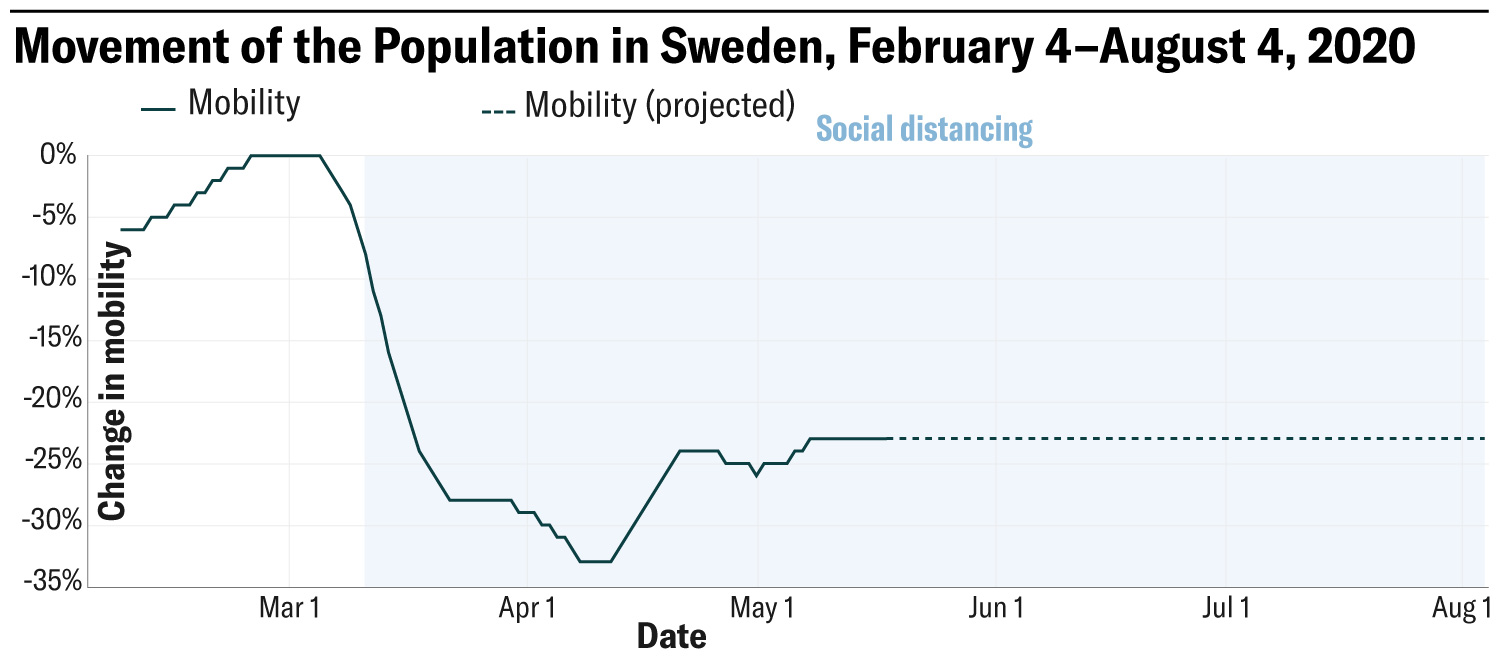Waiting on Time To Tell
 |
| Anders Tegnell, Public Health Agency Sweden. (Pontus Lundahl/TT FILE via AP) |
"I'm looking forward to a more serious evaluation of our work than has been made so far. There is no way of knowing how this ends."
"Maybe [a stricter lockdown would have been preferential], I don't know. But you have to consider whether there are other tools that work just as well."
"In the same way that all drugs have side effects, measures against a pandemic also have negative effects. At an authority like ours [in Sweden], which works with a broad spectrum of public-health issues, it is natural to take these aspects into account [the avoidable cost of lockdowns]."
Anders Tegnell, Swedish State epidemiologist

"Sweden's policy is unusual in that it took a much less stringent approach to preventing transmission, but interestingly it implemented those measures at a very early stage in the pandemic, before large amounts of community spread had occurred."
"Sweden's approach may be sustainable in ways other countries have not proven to be. It should be noted that lockdowns are a response to an imminent surge into health care, with the goal of stopping as many transmission chains as quickly as possible."
"The full accounting will only be possible after the pandemic."
"[In Sweden, it is] bluntly not clear how the vulnerable are expected to be protected. Once you get a very large outbreak in one age group, it becomes more difficult to protect others."
"Sweden's approach has been widely misrepresented as doing nothing. It's not. Given a starting point in which it has been decided an outbreak is inevitable, the question becomes how to mitigate it and preserve health care, and the earlier on in the outbreak you take action to slow transmission, the less intense that action needs to be -- initially."
"Sweden's strategy, in that sense, has been smarter than those countries that encouraged transmission until shutdowns became necessary. However, it has come at a great cost in terms of mortality in vulnerable groups ... It also needs to be flexible and responsive; if a surge is building, you need to be able to detect it and know what you will do to avert it."
"As for the overall outcome. Time will tell."
William Hanage, associate professor of epidemiology, Harvard School of Public Health, Boston
 |
| Sign outside a pub in Stockholm, Sweden. REUTERS/Colm Fulton |
Those lockdowns brought absolute havoc to societies whose health system was unprepared and who feared the breakdown of their medical-hospital personnel ability to cope with a flood of serious respiratory syndrome cases requiring emergency treatment. That decision led to mass unemployment as business activity was frozen and economies went into a deep dive. And while people perished from the dire effects of the disease, those countries were able to control the situation, balancing lives saved against a ruined economy.
Sweden has now been excluded for the time being from the European Union's recently declared safe-travel lists, a penalty exercised resulting from his decision to advise his government against a lockdown in Sweden. Which brought that country the distinction of having one of the world's highest mortality rates for COVID-19. Dr.Tegnell appears now to have reversed himself on his statement of uncertainty, expressing a new opinion that he likely did, after all, make the right decision for Sweden.
 |
| Skane University Hospital, Lund, Sweden. TT News Agency Johan Nilsson via REUTERS |
He has convinced himself that all other nations reached a self-destructive decision in deciding for lockdown. The world, he now argues, has passed only the first of many stages of dealing with COVID-19; there is certain to emerge further, ongoing outbreaks, perhaps with mutating strains more highly infectious than the original. By maintaining normal life rhythms, choosing to believe that people are capable of behaving rationally and self-protectively, with concerns for the welfare of their communities, he is convinced Sweden embarked on the correct course of action.
He also feels vindicated that the WHO, which had originally been critical of the Swedish decision, naming Sweden on a list of 11 European countries where "accelerated transmission has led to very significant resurgence that, if left unchecked, will push health system to the brink", has now decided to proclaim that contagion rates in Sweden are "stable", linking the high case numbers to a testing increase.
 |
"There are several very positive trends in Sweden, notably, a continued decrease in new cases presenting with severe disease, a gradual decrease in patients admitted into intensive care since April, and continued decreasing numbers of new COVID-19 deaths."
"Sweden has involved the community in the response, and has been able to keep transmission to levels that can be managed by the Swedish health system."
World Health Organization
There was a high cost associated with the Swedish approach, however. Its death toll per 100,000 population represents five times that of neighbouring Denmark. The Danes imposed a strict lockdown in mid-March that has since been wound back, following the virus being brought under control. In Sweden, nursing homes saw a death rate that has been brutal, and at least one criminal investigation has resulted from that misfortune.
Now, Dr. Tegnell has backtracked his earlier mea culpa, declaring himself uncertain whether in hindsight he would have chosen to impose a stricter lockdown. Strict lockdowns, he feels, may have the effect of seeming to contain the virus temporarily, but the virus would return and that wouldn't have been prevented. Lockdown has its absolute deficits, and he lists among them, domestic abuse, loneliness and mass unemployment.
 |
| In response to government guidelines on social distancing, Sweden's mobility dropped 33 percent in April—not as dramatic as neighboring countries. View latest: https://covid19.healthdata.org/sweden. IHME |
Labels: Case Load, COVID-19, Death Toll, Lockdown, Sweden

0 Comments:
Post a Comment
<< Home